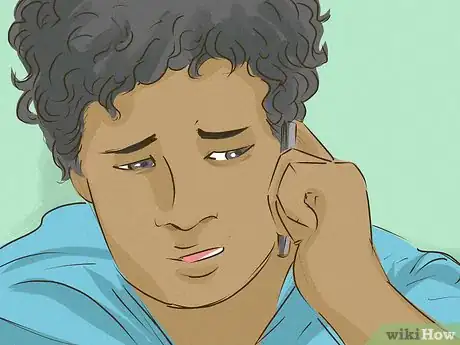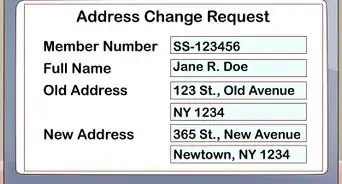This article was co-authored by Leslie Bosch, PhD. Dr. Leslie Bosch is a Developmental Psychologist, National Board Certified Health and Wellness Coach, and Owner of Bosch Integrative Wellness. With over 15 years of experience, she specializes in providing stress relief coaching services to individuals and groups using a variety of scientifically proven methods for change including motivational interviewing, positive psychology, self-compassion, non-violent communication, social learning theory, and self-determination theory. Dr. Bosch received training from the Andrew Weil Center for Integrative Medicine at the University of Arizona and earned a PhD in Human Development and Family Studies from The University of Arizona. She is also a member of the National Board of Health and Wellness Coaching Association. Dr. Bosch has published many papers and been featured in the media numerous times.
This article has been viewed 95,657 times.
Sometimes when situations get so bad at home you can't bear it, you get the urge to run away. And then you do...but once you have, the daunting question comes: "How will I survive?" Well, this article will guide you through thinking it through.
Things You Should Know
- If you're thinking of running away from home or have already run away, call the National Runaway Safeline at 1-800-RUNAWAY to talk to someone who can help you.
- You can also text the National Runaway Safeline at 66008.
- For more support and advice, visit https://www.1800runaway.org/.
Steps
-
1Think practical and short-term. If you have run away from home, you will likely have limited resources available in the form of money, food, and shelter. However, it is important that you are safe and healthy.
- You will need to find somewhere that you can sleep safely. Look in the phone directory for homeless shelters or charities that support the homeless to assist you in finding a location and getting food.[1]
- Until you have further money, your diet is going to be basic. So if you have some money and you cannot locate free food, try the supermarket for home-brand food, which is often cheapest.
- Keep in mind your facilities. If you don't have access to a stove or microwave, frozen meals aren't going to help you.
-
2Think safety first. When you run away, you are on your own in the world, and the world has the potential to be a dangerous and dark place. You need to have plans and strategies to keep yourself safe. What do you plan to do with your life now that you are away? It isn't realistic to just hide forever, you need to join the world somehow. Even homeless people have a specific corner where they beg for money each day, and a repeated place to go to sleep.[2]Advertisement
-
3Communicate. While you may have left your home because of a bad situation, think about how your family must be feeling. Is what you left for really that bad to inflict this much pain on them? Think about the grief they must be enduring. If the situation was that bad, think about your extended family or friends. Is there anyone in your world you can communicate with? Communicating doesn't mean going back; it just means ending the grief and sadness your departure has caused. Not knowing if you are alive or dead is the worst feeling for people who love you. Think about whether you really want to cause that.
-
4Think long-term. Do you see yourself in the future just staying lost, or do you want to re-enter the world?[3] If you do, how are you going to get accommodation? Do you need to eventually go back to school to get a job? How are you going to do that? Do you need to wait until you are old enough so that the law can't force you back home? If that is the case, how are you going to get an income? How are you going to hold a job without indicating where you are? Most jobs require lodging of tax information, which in turn requires your identity; how are you going to get around this?
-
5Ask for help if you need it. There are a lot of free resources for children and adults that need help. Free telephone counselling is available to help you resolve the issues. Talk to charity workers about your life and why you left it. Perhaps they can help you find a way back if you want it. If not, they can still help with any feelings of sadness, anger or depression you may be carrying around.[4]
- Always be on the lookout for adults you can trust, adults who have your best interests in mind, including in your own family.
Community Q&A
-
QuestionI'm in middle school and I don't want to leave school. I know what high school I'm going to though. How do I get back to school?
 Community AnswerTrustworthy friends would probably take you to school. If they can't, set up camp near your school, but be very careful. If you really need to go to school, do it but it is not recommended because the school can contact your parents, and your parents will contact the school and ask if the have seen you. Make sure to keep camp moving because the cops will be looking.
Community AnswerTrustworthy friends would probably take you to school. If they can't, set up camp near your school, but be very careful. If you really need to go to school, do it but it is not recommended because the school can contact your parents, and your parents will contact the school and ask if the have seen you. Make sure to keep camp moving because the cops will be looking.



































































